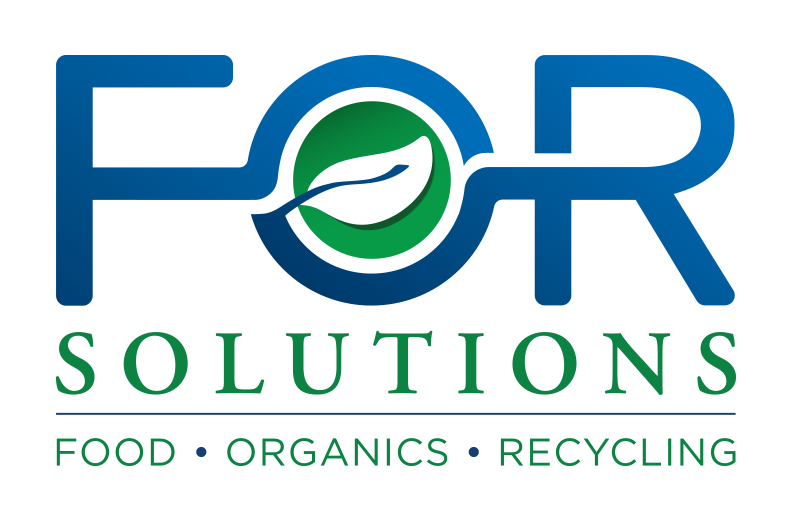Princeton University Biodigester Receives Recognition
In-vessel composting system to convert uneaten food into high-quality compost.
Princeton, NJ — July 16, 2018
FOR Solutions, developer of commercial-scale composting systems for businesses and institutions, announced that its Model 1000 Composting System installed on the campus of Princeton University has been thoroughly examined by UL’s Field Evaluation Services. Site-specific UL Field Evaluations help regulatory authorities determine the compliance of a product, leading to “approval” of the installation. UL’s evaluation process consists of documentation review, visual and mechanical inspection, suitability for installation in accordance with the adopted installation Code(s) such as the National Electrical Code, applicable testing, and an engineering report. A UL Field Evaluation Product Label has been applied to the Model 1000 Composting System signifying that complies with the applicable requirements. This is only the fifth time a composting system has achieved such recognition; the last time was in 2016.
When in operation, the FOR Solutions Model 1000 Composting System will divert uneaten food generated on campus from being landfilled, recycling it into a nutrient-dense, high-quality compost. Princeton University is committed to using the campus as an educational and operational living laboratory to provide the campus community direct access to a range of repeatable, scalable solutions to global sustainability issues. According to the USEPA, the U.S. sends more than 30 million tons of uneaten food to landfills each year, recycling less than three percent of what is generated. Landfilled uneaten food harms the environment by producing methane, a potent greenhouse gas, and leachate, which pollutes water systems. The FOR Solutions Model 1000 Composting System was selected as the campus demonstration system to provide students, faculty, and staff access to a tangible, working strategy that offers research and education flexibility on the main campus.
The FOR Solutions Composting Systems include an aerobic in-vessel rotary drum digester that epitomizes sustainable materials management by recycling uneaten food into high-quality compost in just five days in a virtually odorless process that requires no supplemental heat or enzymes. FOR Solutions composting systems are optimized for large institutions such as colleges and universities, correctional facilities, municipalities, shopping mall food courts, hospitals, K-12 schools and school districts, and mid-to-large size businesses that currently send large amounts of uneaten food to landfills or incinerators. The FOR Solutions Model 1000 system processes 1,000 pounds of uneaten food per weekday.
“FOR Solutions composting systems meet all of our criteria for demonstrated quality, performance driven design, and ease for students and faculty to use the system as a research and educational tool” said Shana Weber, Ph.D., Director of the Princeton University Office of Sustainability. “Of key importance, the compost from the Model 1000 Composting System is a biologically active soil amendment that may be immediately land applied. We believe the most environmentally responsible way to manage uneaten food is to recycle its nutrients in order to restore depleted soils and reduce fossil fuel based inputs among many other considerations.”
“FOR Solutions congratulates Princeton University for its innovative approach to sustainability,” said FOR Solutions Founder Nicholas Smith-Sebasto, Ph.D. “We are delighted to partner with Princeton University to help change the way the college and university campuses manage their uneaten food. Princeton University joins a growing list of other generators of uneaten food who are making FOR Solutions Composting Systems the centerpiece of their food recycling efforts.”
About FOR Solutions
FOR Solutions uses patented biotechnology to design and market state-of-the-art aerobic in-vessel rotary drum composting systems intended to facilitate on-site or local recovery and composting of discarded uneaten food. Its standard composting systems are designed to process between 2,500 lbs. and 40,000 lbs. of discarded uneaten food per week in a process that requires just 5 days.
About Princeton University
Chartered in 1746, the College of New Jersey was British North America’s fourth college. Located in Elizabeth for one year and then in Newark for nine, it moved to Princeton in 1756. The College was officially renamed Princeton University in 1896. The University provides its students with academic, extracurricular, and other resources – in a residential community committed to diversity – that prepare them for positions of leadership and lives of service in many fields of human endeavor. Living up to its unofficial motto, “In the Nation’s Service and the Service of Humanity,” Princeton University has educated thousands of individuals who have dedicated their lives to public service. The mission of the Office of Sustainability is to cultivate the desire in all people to lead meaningful lives in service of global human and environmental well-being

